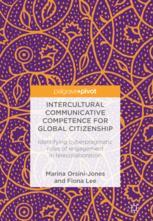

Most ebook files are in PDF format, so you can easily read them using various software such as Foxit Reader or directly on the Google Chrome browser.
Some ebook files are released by publishers in other formats such as .awz, .mobi, .epub, .fb2, etc. You may need to install specific software to read these formats on mobile/PC, such as Calibre.
Please read the tutorial at this link: https://ebookbell.com/faq
We offer FREE conversion to the popular formats you request; however, this may take some time. Therefore, right after payment, please email us, and we will try to provide the service as quickly as possible.
For some exceptional file formats or broken links (if any), please refrain from opening any disputes. Instead, email us first, and we will try to assist within a maximum of 6 hours.
EbookBell Team

0.0
0 reviewsThis work builds on the assumption that language learning and teaching needs to be made more relevant to the 'glocalised' digital world we live in. Its authors argue that staff in Higher Education (HE) must prepare students for effective online interaction and explores the digital, linguistic and critical intercultural components of ‘global citizenship’. The book pivots around an innovative research study; linguistic politeness frameworks are revisited to analyse the written online exchanges on an Online International Learning (OIL) - or intercultural telecollaborative - project between the UK and France.Through the use of cyberpragmatics, and inspired by Meyer and Land’s ‘threshold concept pedagogy’, the authors examine the challenges and solutions identified by an ‘expert student’ in managing rules of engagement and intercultural awareness when interacting online. This book will appeal to students and scholars of applied linguistics, education, sociolinguistics and intercultural communication, and provide a valuable resource for teacher trainers, language teachers and educators across the world.